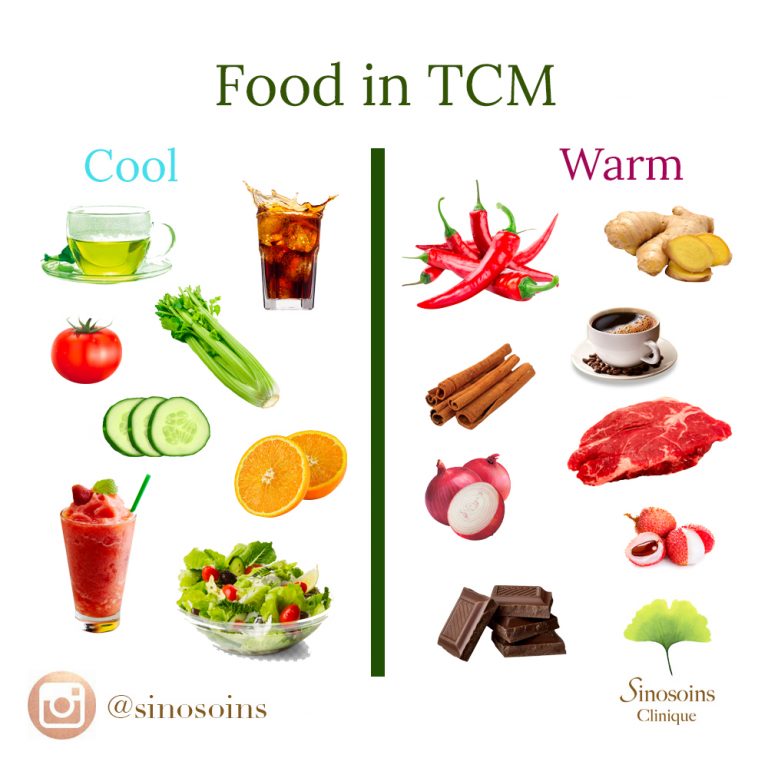Food in Traditional Chinese Medicine
April 1, 2021
Did you know that the food we eat everyday has an impact in our bodies? In TCM, food is generally categorized into 2 separate types: cool or warm. The nature of food is not determined by their actual temperature but rather the effects they have on a person’s body. For instance, when a person continually consumes one type of food of cold nature, it can create an imbalance in the body which may affect the immune system, respiratory system, digestive system, reproductive system, etc.
According to TCM, over-consumption of “cold” food like cold drinks may promote chilliness, mucus, bloating after meals, painful periods or bad blood circulation. A person who eats too much “warm” food tends to feel hot or have acne, mouth ulcer or a grumpy altitude. The goal of TCM is to restore the imbalance caused by “cool” and “warm” foods. These symptoms will diminish when people change their diets by reducing their intake of raw food (or ice drinks, cold beer, etc).
Some examples of foods that are considered warm are beef, coffee, ginger, hot peppers, lychee, mandarins. And some examples of “cool” food are salad, green tea, cold beer, cold smoothies, etc. Generally, raw fruits or vegetables have cool nature. There is also food that are “neutral” which means they are neither warm nor cool. These include rice, pork, fishes, noodles, etc.

